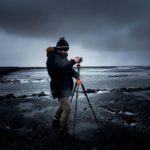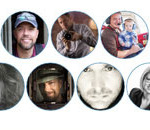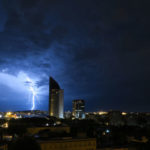In December 2007, TIME Magazine named Russian president Vladimir Putin as Person of the Year. Photographer Platon was flown to Moscow for the shoot. He approached the massive fortress-like wall covered with snipers. At gunpoint, he was led through the gate and told to wait until Putin arrived; when he finally did, he walked in surrounded by a posse of translators, advisors, and bodyguards. The resulting portrait wound up on the cover of TIME and will probably remain Putin’s most enduring portrait:
Platon, whom some might incorrectly call a photographer, (“I’m known as a photographer, but really I’m a storyteller,” he says in a statement that would sound horribly pretentious if he weren’t so incredibly talented), broke the ice with the Russian strongman immediately. He asked him if he liked The Beatles. Putin said he did, that his favorite Beatle was Paul and his favorite song was–no, not “Back in the USSR”–the delicate ballad, “Yesterday”.
“It’s that connection that allowed me to get close. Because he suddenly realized that I’m not scared of him. I’m not intimidated by him, you know? I’m there to do an honest portrait of a person. That’s how I got the truth. And the truth is that—that’s the face of power. It’s the face of cold authority.” –Platon
The editors at TIME, for their part, took a lot of flak from the Western world over their decision to put Putin on the cover. (All this seven years before the Crimea debacle of 2014.) But the editors were confident in their choice and offered the following justification, which speaks beautifully to Platon’s portraits:
“TIME’s Person of the Year is not and never has been an honor. It is not an endorsement. It is not a popularity contest. At its best, it is a clear-eyed recognition of the world as it is and of the most powerful individuals and forces shaping that world—for better or for worse. It is ultimately about leadership—bold, earth-changing leadership.” – Richard Stengel, TIME Magazine
The close-up headshot has since been appropriated, contorted, and Photoshopped by Russian protesters and gay rights activists in an effort to break his conservative ideals. That face has been colored in makeup and burned on the bodies of dummies. Platon, meanwhile, is thrilled:
“When the people claim a picture and it somehow connects with the times we’re living in. That’s the greatest honor we could wish for. What I’m striving for is to humanize the power system. To ask a very important question: Who are you? Who are you, really?”
Like This Article?
Don't Miss The Next One!
Join over 100,000 photographers of all experience levels who receive our free photography tips and articles to stay current:








Leave a Reply